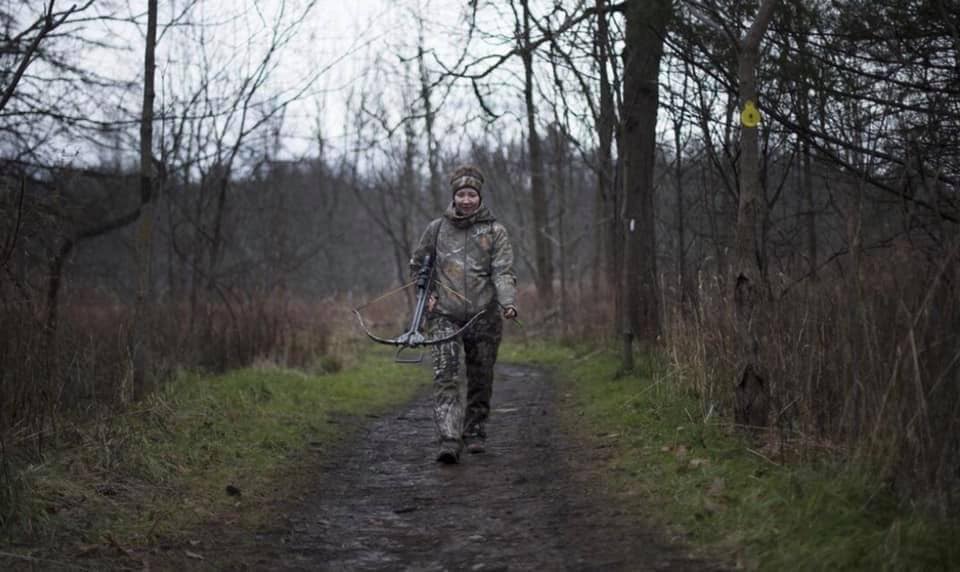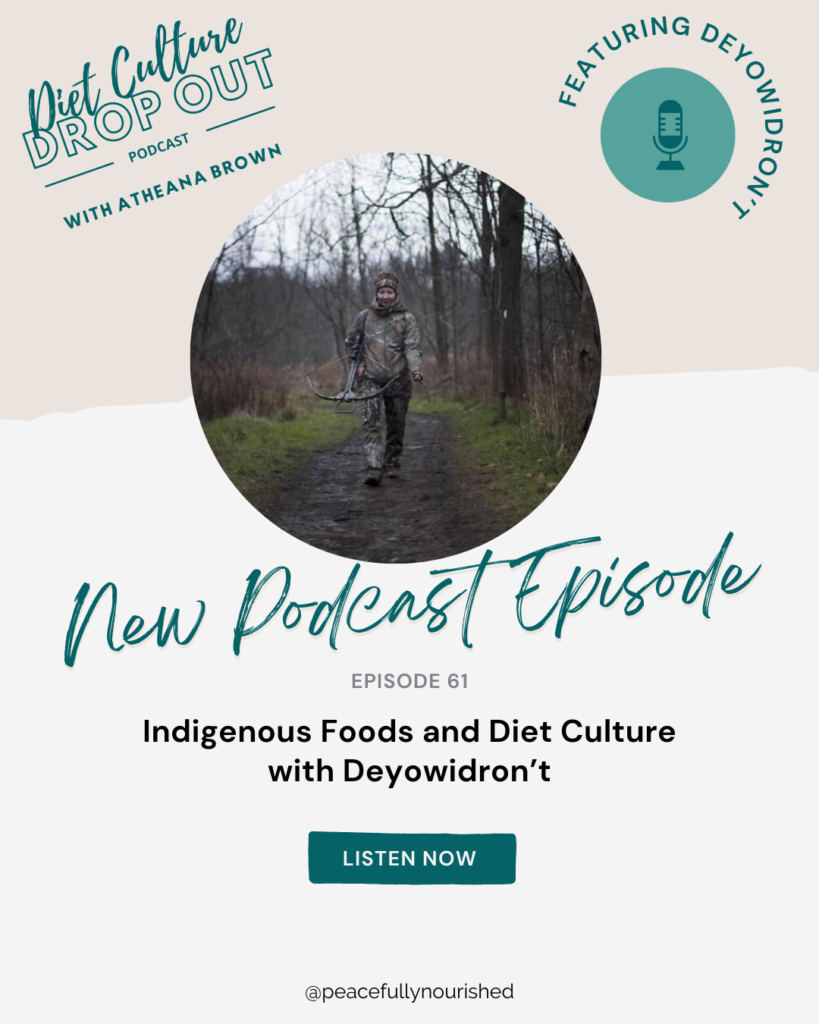In the world of diet culture conversations, a particular perspective has been relatively underrepresented – the Indigenous viewpoint. The 61st episode of Diet Culture Dropout podcast sheds a light on Indigenous foods and diet culture featuring Deyowidron’t. Who is a Haudenosaunee woman, mother, advocate, and registered dietitian who shares her knowledge on the perspective of Indigenous food history and culture. In this blog post, we highlight the insights and conversations around Canada’s First Nations, food sustainability, colonial influences, and cultural preservation of traditional foods.
You can catch the full podcast episode here
Impact of Colonization on Traditional Landowners of Turtle Island
Dayo discusses the impact of long-held ideals about land ownership, resulting from centuries-old policies and practices of land appropriation by Europeans. Discussing what is known as the “Dishwampum,” she mentioned its symbolism for Indigenous people’s relationship with the land. In this context, everyone has equal access to sustenance, and people must maintain mindful stewardship of the land to ensure sustainable access. Access to everyone, their communities, children and future generations.
Dayo asserted that many Canadians hold misconceptions about Indigenous culture, history, and treatment due to the historically Eurocentric education system. In her perspective, we need to reconnect with the historical recordings and narratives of Indigenous communities.
Traditional Foods – More Than Just Fry Bread
When discussing traditional foods, Dayo expressed concern about the misconception about Indigenous foods, specifically fry bread. While fry bread is widely touted as traditional food, Dayo revealed its roots lie in managing the rations supplied by colonial systems such as flour and lard, imposed after native food sources were depleted by the settlers.
Dayo shares about the need to reintroduce traditional foods into dietary conversations and practices. This way, knowledge gaps can be bridged, and individuals can reconnect with the wisdom, rich history, and nutrient benefits of traditional foods.
Protecting from Diet Culture
When asked about the most protective action an individual can take against diet culture, Dayo suggested a self-reflective approach. She urged us to think about our role and connection to our environment, especially water, and our food sources.
For kids, she recommended instilling self-love, autonomy, and exposure to the environment, helping kids to recognize their place in nature to develop a deeper connection with food.
Advocate for Change – Be the Change
Dayo concluded the conversation on an uplifting note by expressing the importance of being an advocate for change. Through her work with the Indigenous Nutrition Knowledge and Information Network of Dietitians in Canada, she encourages everyone to collaborate, engage, and support each other in navigating these complex discussions on diet culture and Indigenous food.
Final Thoughts
Indigenous foods and diet culture go beyond just what’s on the plate. It touches every aspect of our lives from culture, history, and identity to self-care and resilience. By engaging in these important conversations, we can learn much about the historical, cultural, and nutritional richness found in Indigenous foods which are far too often overlooked in the modern day food systems.
Stay in Contact
Connect with Deyowidron’t Teri Morrow, RD MA
Instagram @ogwayadodogehsdoh_alignhttps://www.instagram.com/ogwayadodogehsdoh_align?igsh=aHBtb2NwemZ5MWhy&utm_source=qr


leave a comment
share
share
share
share
share